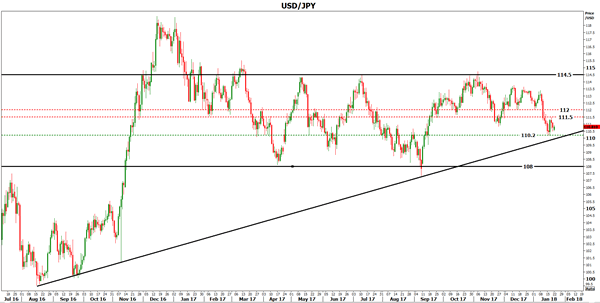The Bank of Japan (BoJ) will announce its policy decision during the Asian morning on Tuesday. No change in policy is expected and as such, focus will probably turn to Governor Kuroda’s press conference for any signals on whether the Bank is considering to alter its ultra-loose framework, as has been speculated recently. With inflation still far away from its target though, the BoJ chief may push back against such expectations.
Speculation that the BoJ may be getting ready to scale back its massive stimulus program came back to the forefront lately, helping the yen to reach 4-month highs against the greenback. The move followed news that the Bank had purchased fewer longer-dated bonds than usual in its regular operations, leading investors to question whether this is a sign of what is to come.
Despite the market reaction, however, one should distinguish whether this was a signal or noise in the bigger picture. Under its current framework of QQE with yield-curve control, the BoJ has committed to buying as many Japanese Government bonds (JGBs) as needed to keep the yields on longer-dated bonds fixed near 0%. Therefore, the fact that it purchased fewer bonds in one of its operations merely shows the Bank needed to intervene less in the market in order to achieve its goal, and should not be confused with a policy signal.
Let’s not forget that similar speculation occurred back in November as well, after Governor Kuroda mentioned the risk of low rates harming the profitability of banks and hence weakening the effects of ultra-easy monetary policy. The BoJ chief quickly came to the rescue though, reassuring investors in the press conference following the December meeting that the Bank sees no need to change its yield-targeting strategy, and that it "won’t raise interest rates just because the economy is improving".
We could see such comments being repeated at this gathering. Core inflation ticked up to 0.9% y/y in November, but this is still a long way off from the BoJ’s 2% target, implying the Bank is not ready to declare victory on inflation just yet. Moreover, any hints from Governor Kuroda about a reduction in stimulus would likely trigger a sharp appreciation in the JPY, which the Bank surely wants to avoid as that could make it more difficult for inflation to reach 2%.
Thus, should Kuroda reassure markets once again that the Bank is committed to its ultra-loose framework, then the yen may come under selling pressure. Dollar/yen could drift higher and target the 111.50 territory, where a potential upside break could see scope for extensions towards 112.00.
On the other hand, the slightest hint from the BoJ that a stimulus reduction may be on the cards would likely push the JPY higher. In such a case, dollar/yen could tumble and break below the crossroads of the 110.20 zone and the uptrend line taken from the lows of August 2016. Such a break could open the way for the 108.00 support area.

